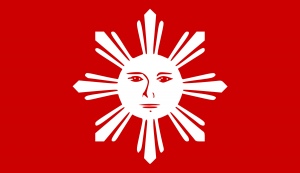Language/Tagalog/Vocabulary/Business-and-Work
Introduction[edit | edit source]
Welcome to the "Business and Work" lesson of the "Complete 0 to A1 Tagalog Course"! In this lesson, we will dive into the world of business and work-related topics in Tagalog. Whether you're interested in learning about different professions, job-related vocabulary, or common expressions used in the workplace, this lesson has got you covered. By the end of this lesson, you will have a solid foundation in discussing business and work in Tagalog, enabling you to confidently communicate in professional settings.
Let's begin!
Different Professions[edit | edit source]
In Tagalog, professions are referred to as "propesyon" or "trabaho." Here are some common professions and their corresponding Tagalog translations:
| Tagalog | Pronunciation | English Translation |
|---|---|---|
| Doktor | Dohk-tor | Doctor |
| Abogado | Ah-boh-gah-doh | Lawyer |
| Guro | Goo-roh | Teacher |
| Nars | Nars | Nurse |
| Inhinyero | Een-yee-neh-roh | Engineer |
| Manunulat | Mah-noo-noo-laht | Writer |
| Artista | Ahr-tees-tah | Actor/Actress |
| Manager | Mah-nah-jer | Manager |
| Pulis | Poo-lees | Police Officer |
| Karpintero | Kar-pin-teh-roh | Carpenter |
To ask someone about their profession, you can use the phrase "Ano ang trabaho mo?" which translates to "What is your job?" For example, "Ano ang trabaho mo?"
Job-Related Vocabulary[edit | edit source]
When discussing work-related topics in Tagalog, it's important to be familiar with job-related vocabulary. Here are some key words and phrases to add to your vocabulary:
- Trabaho - Work/Job
- Kumpanya - Company
- Suweldo - Salary
- Kontrata - Contract
- Proyekto - Project
- Tanggapan - Office
- Kliyente - Client
- Interbyu - Interview
- Promosyon - Promotion
- Kumusta ang trabaho mo? - How is your job?
- Naghahanap ako ng trabaho - I am looking for a job
- Paano mag-apply? - How to apply?
Common Expressions Used in the Workplace[edit | edit source]
In the workplace, there are certain expressions that are commonly used to communicate with colleagues, superiors, and subordinates. Here are some useful expressions:
- Magandang umaga - Good morning
- Magandang tanghali - Good afternoon
- Magandang gabi - Good evening
- Paalam - Goodbye
- Oo - Yes
- Hindi - No
- Salamat - Thank you
- Walang anuman - You're welcome
- Paumanhin - Sorry
- Pwede ba akong magtanong? - Can I ask a question?
- Puwede bang humingi ng tulong? - Can I ask for help?
- Maaari bang mag-file ng leave? - Can I file for leave?
It's important to note that in the workplace, the use of "po" and "opo" (polite particles) is highly encouraged to show respect and politeness.
Cultural Insights[edit | edit source]
Business and work culture in the Philippines is influenced by a mix of Western and Filipino values. It is common for Filipinos to prioritize harmonious relationships and teamwork in the workplace. Respect for authority and seniority is also highly valued.
In terms of dress code, business attire is the norm in formal work settings. This typically includes suits or traditional Filipino attire like the barong Tagalog for men, and dresses or business suits for women. However, it's important to consider the specific dress code of the company or organization you're working for, as some industries may have more relaxed dress codes.
The Filipino concept of "bayanihan," which translates to "community spirit," is often seen in the workplace. This refers to the practice of helping and supporting each other, especially during challenging times or when a colleague is in need. It is not uncommon for colleagues to come together and lend a helping hand to accomplish a task or finish a project.
Practice Exercises[edit | edit source]
Now, let's put your knowledge to the test with some practice exercises. Translate the following English sentences into Tagalog:
1. What is your profession? 2. I work as a teacher. 3. Can I apply for a job here? 4. Good morning, boss! How are you today? 5. I need help with this project.
Answers: 1. Ano ang propesyon mo? 2. Trabaho ako bilang guro. 3. Pwede bang mag-apply ng trabaho dito? 4. Magandang umaga, boss! Kumusta ka ngayon? 5. Kailangan ko ng tulong sa proyektong ito.
Conclusion[edit | edit source]
Congratulations! You have successfully completed the "Business and Work" lesson of the "Complete 0 to A1 Tagalog Course." You have learned how to discuss different professions, job-related vocabulary, and common expressions used in the workplace. Keep practicing and expanding your vocabulary to become even more confident in using Tagalog for business and work-related conversations.
In the next lesson, we will delve into the world of "Law and Justice" in Tagalog. Exciting times lie ahead as you continue your journey to becoming fluent in Tagalog!
Sources[edit | edit source]
- 100 Easy And Coolest Tagalog Business Vocabulary - Ling App
- Best Online Tagalog Tutors - Intelligent
Other Lessons[edit | edit source]
- Food and Drinks
- Feelings and Emotions
- Animals
- Colors and Shapes
- Shapes
- Education
- Greetings and Polite Expressions
- Counting and Numbers
- Law and Justice
- How to Say Hello and Greetings

